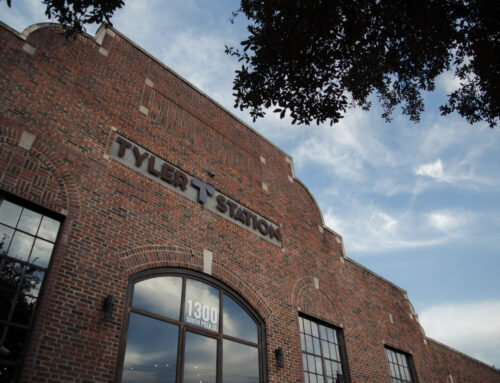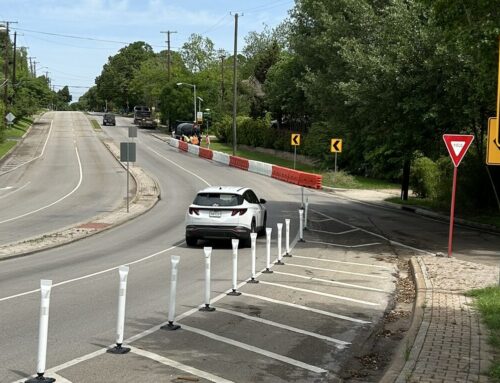The city of Dallas plans to put a bond package before voters in November in hopes of paying for much-needed upkeep. Unfortunately, the city intends to issue bonds totaling between $450 million and $550 million; only about 5 percent of its $10 billion needs/wants inventory list.
City Councilman Scott Griggs told neighbors at a town hall meeting Wednesday night that the city’s top priority is to build an enormous drainage tunnel to control flooding for Mill Creek. That paved-over creek runs from Downtown to Uptown and routinely floods the Baylor hospital area in heavy rains.
The price tag for that project is about $300 million. That means the city would be left with $150 million to $250 million for everything else.
To put that in perspective, consider that it costs about $1 million per lane, per mile to build a new road. One project, ranked very low on the north Oak Cliff needs/wants list, for example, is to rebuild Clinton Avenue from West Seventh to West Davis. That 184-foot stretch of road, near the Kessler Theater, would cost $20,050 to replace.
Overall, the portion of Oak Cliff included in Griggs’ district has a needs/wants price tag of about $309 million. That includes funding for erosion control, flood management, storm drainage, parks and rec centers, street and alley reconstruction, bridge repairs, sidewalk safety, lighting, traffic signal updates and other upkeep.
Griggs noted there are 14 City Council districts. Say each one is vying for a piece of $200 million. That’s an average of $14.3 million per district. Griggs’ district includes Oak Cliff, West Dallas and the Mountain Creek area; three distinct geographical areas with unique needs. That means, if his District 3 receives $14.3 million in the bond election, his portion of Oak Cliff would have about $4.8 million. One of the highest priorities for Griggs’ Oak Cliff district is flood control for Five Mile Creek, which would cost more than $4.2 million.
And that’s only if voters approve a bond program. Most of the 30 or so neighbors who attended last night’s meeting indicated they would not vote for a bond program if it contributed very little to their neighborhood.





